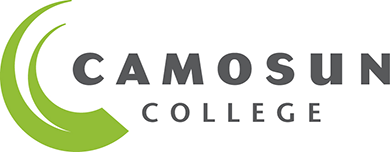Camosun cares about community issues
Archived Content
This archived web page remains online for reference, research or record-keeping purposes. This page will not be altered or updated and may contain out of date information. If you’re looking for specific information and haven’t found it, please contact communications@camosun.ca.
 ...but mostly we care about people
...but mostly we care about people
Every day when you open the paper, listen to the radio, even walk the main streets of downtown, signs of society’s new normal are everywhere. Poverty, homelessness, addictions and mental health challenges lurk anywhere you choose to look.
"I feel drawn to the plight of people who live with complex and overlapping mental, social, and substance use  challenges," says Kristin Ross, Program Leader of Camosun’s mental health programs. "The problems are not isolated to the streets, though; they also hide behind the walls of homes, schools and the workplace and can be so overwhelming that caring, compassionate people start to lose heart," says Ross.
challenges," says Kristin Ross, Program Leader of Camosun’s mental health programs. "The problems are not isolated to the streets, though; they also hide behind the walls of homes, schools and the workplace and can be so overwhelming that caring, compassionate people start to lose heart," says Ross.
It concerns Ross that things have gone this far and she agrees that proposed solutions can seem elusive, expensive or even implausible. She finds hope, though, when she reads thoughtful letters to editors or encounters people who are coping in positive and healthy ways with their personal challenges. There seems to be a collective will to improve the conditions of those in need.
While caring solutions start with the heart, long term support services that have a realistic chance of success rely on well-educated caregivers and sound programming. Team approaches like VIHA's new ACT program (Assertive Community Treatment) work across service boundaries to help people living with mental illness and addiction get the housing, addiction services, health care and income support they need. Qualified workers with a special combination of expertise and experience will most certainly be a cornerstone of such integrated approaches.
How you can help
- Come to an info session on:
- Learn skills to work in the field of mental health and addictions
Ross is an instructor in Camosun’s School of Health and Human Services and she feels privileged to be a part of two vital programs that contribute to the mental and social well-being of our communities: Community Mental Health Worker Certificate Program (CMHW) and Interprofessional Mental Health & Addictions Post-Degree Diploma (IMHA).
Community Mental Health Worker Certificate Program (CMHW) (Community Mental Health)
Graduates with a CMHW certificate will have the foundational knowledge and skills to support those who face various mental health challenges. Workers provide client-focused psychosocial rehabilitation and support, and there is a growing need for qualified Mental Health Workers in our communities. CMHW is the preferred qualification to work as a Community Mental Health Worker within the Vancouver Island Health Authority (VIHA) and its mental health affiliates.
The CMHW certificate program is a 20-week program (full-time equivalent). Full-time classes start in April, part-time classes start in September.
Interprofessional Mental Health & Addictions Post-Degree Diploma (IMHA)
IMHA graduates work with older teens and adults living with complex, overlapping mental health and addiction challenges. With a focus on advanced knowledge and skills, IMHA grads may work in acute, tertiary and community settings as members of an interprofessional team. The part-time 12-month program is taught using a combination of face-to-face and web-based classes and is suited both to local and distance learners. Students must have a relevant 4-year degree (nursing, social work, child and youth care, occupational therapy) or a related degree in conjunction with experience in mental health or addictions services (education, psychology, criminal justice, etc.). Part-time classes start in June.
More information
For more information on these programs, visit an info session or call 250-370-3912.
Last updated: October 6, 2015 2:04 pm


